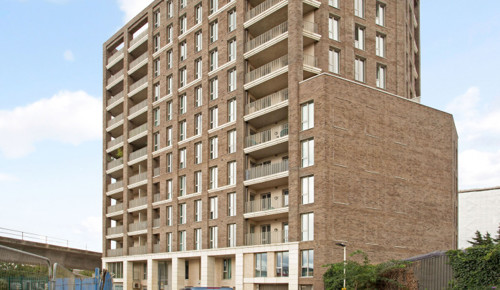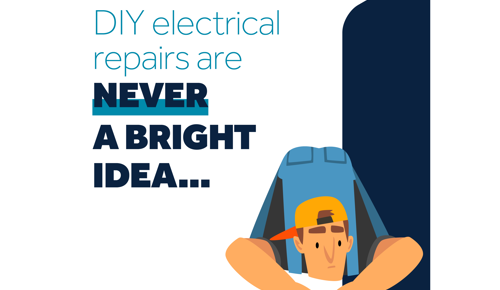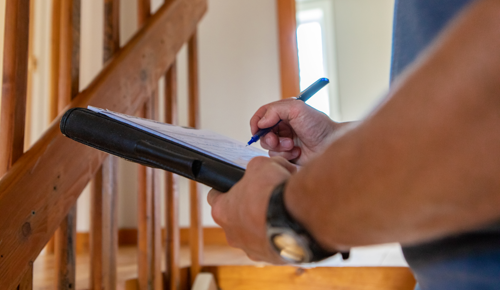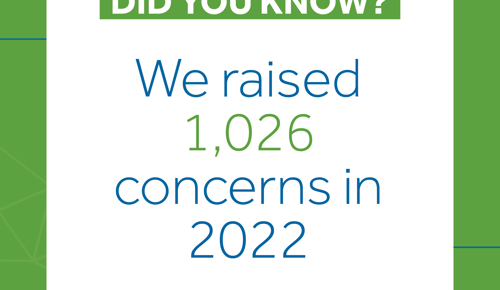Our Good Neighbourhood Management Approach was developed in response to the Housing Ombudsman’s Spotlight on Noise Report. It highlighted the need for landlords to have clear policies for managing problems that don’t quite meet the threshold for ASB but are causing disruption to residents’ lives and could escalate if left unchecked.
The approach is designed to help with everyday issues like:
• Unintentional noise between properties
• Disputes about use of shared spaces such as communal gardens
• Dogs barking
• Children playing
• Noise from DIY
• Car parking disputes
• Lifestyle differences.
These are the kinds of things that might not be considered ASB, but if not addressed early, could lead to bigger problems. Our aim is to step in early and support residents in finding a solution, because nuisance isn’t always intentional, and a little understanding can go a long way.

What makes this different from managing ASB is the collaborative nature of the process. We’ll work with everyone involved - if they’re willing - to find a way forward that works for all parties. It’s not about blame; it’s about improving relationships and building stronger communities.
The process starts when we’re made aware of an issue. From there, if it isn’t considered ASB, we’ll listen, support, and help guide conversations between neighbours to reach a resolution.
We believe that by working together, we can prevent small problems from becoming big ones and help make our neighbourhoods better places to live for everyone.
How to approach your neighbours if you’ve a problem with them
Our Good Neighbourhood Management approach encourages you to try talking to your neighbour first. A lot of issues can be resolved by reaching out and having a conversation.
• Think about the issue that’s bothering you and ask yourself “am I being reasonable?”. What would you think if they raised the same issue with you?
• Take the time to say hello to your neighbour. If you’re comfortable to, you could invite them in for a cup of tea and a chat
• Choose a time that’s convenient for everyone, avoiding mealtimes, late night or early morning
• If you’re on good terms with your neighbour and there’s a noise issue, invite them in to listen to it - they may not know they’re causing a problem
• Also ask yourself “is this an everyday living noise”?
• Understand your neighbour may have a different lifestyle to yours
• Don’t leave talking to your neighbour for too long, the problem may get worse, and you’re likely to get more frustrated, making it harder to come to an agreement
• Avoid shouting or threatening your neighbour, it will make the problem worse
• Be prepared to listen to what your neighbour has to say and come to an agreement that’s best for both of you
• If you feel you’re unable to speak to your neighbour, you can write them a letter. Keep a copy as useful evidence if the problem gets worse.

If you’ve already spoken to your neighbour or aren’t comfortable doing so. We may suggest:
Asking you both to sign up to a Good Neighbour Agreement (GNA)
The GNA is a document that sets out how a good neighbour would behave to prevent problems for others. And it can be amended to deal with the issue that’s bothering you e.g. ‘you’ll return your bin to its storage area on the day they’re emptied’ or ‘if you’re planning a party, you’ll let your neighbour know beforehand’. Both parties are expected to be involved. And your neighbour may also have suggestions on what to include. We invite all parties to sign up to the GNA. And it doesn’t mean you’re admitting guilt if you do.
Mediation
This is where an impartial professional (the mediator) helps two residents work towards an agreement about future behaviour. It’s confidential and both parties must agree to take part first. At the mediation meeting, each party has an opportunity to express their views. Then they’re encouraged to agree what they’ll do in future. Mediation often results in a better understanding between neighbours.
Dealing with noise through the Good Neighbourhood Management procedure
If you report noise to us and we deal with it through this procedure, as well as taking action to improve relations with your neighbour, we’ll also consider a range of simple measures to help improve the noise between you and your neighbour’s homes.
These may include:
- Checking for repairs contributing to the noise (hammering pipes / creaking floorboards /slamming doors)
- Checking all parties have adequate floor coverings in their home
- Installing low-cost measures to reduce the impact of noise e.g. pads on kitchen unit door or restrictors on doors. There are limits to what we can spend and we’re unable to fund any extensive soundproofing works.
If you’ve an issue with your neighbour, which you think may be handled through our Good Neighbourhood Management procedure. Please get in touch with us and we’ll be glad to help.



























